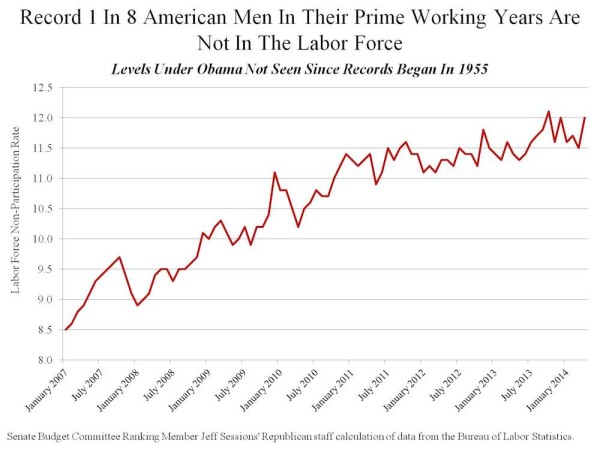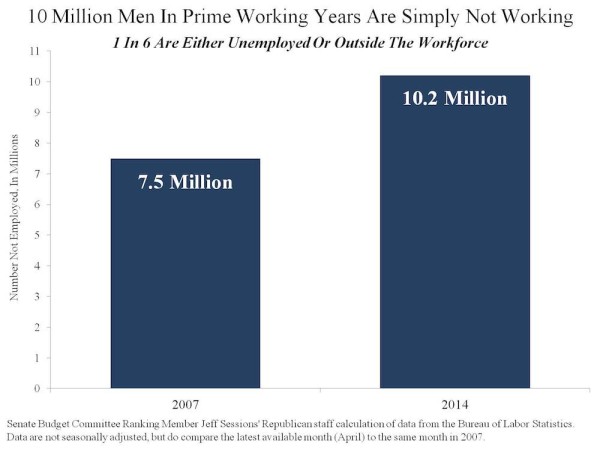On many occasions, I’ve explained that economic output is a function of how much labor and capital are productively utilized.
This is why I relentlessly criticize policies that undermine GDP growth by hindering the use of these “factors of production.”
That’s a bit of economic jargon, but it helps to explain why we shouldn’t be discriminating against capital by double taxing income that is saved and invested.
And it helps to explain why we shouldn’t be discouraging labor by subsidizing unemployment and idleness.
But it’s time to issue a very important caveat. The goal of policy should be economic freedom, not maximizing GDP.
There’s nothing wrong with people choosing to be out of the labor force – so long as they’re not expecting taxpayers to pay their expenses.
Many women, for instance, may want to be at home with children, particularly during their younger years.
Moreover, some older workers may want to retire early.
So while I think it’s bad news that labor force participation has dropped under Obama, there’s more than one possible way to look at that data when you factor in the voluntary choices of some segments of the potential workforce.
But it’s very difficult to give any sort of optimistic or positive spin to these numbers from the Senate Budget Committee. They show a very worrisome trend among prime-working-age men.

These are people who should be in the labor force.
Here’s what John Hinderaker at Powerline wrote about these sobering figures.
An unprecedented number of men–one in six–between the ages of 25 and 54, what should be their prime earning years, are either unemployed or out of the work force entirely.
Here’s the breakdown.
One in eight, the highest proportion since record-keeping began in 1955, are out of the labor force… Another 2.9 million men in the 25-54 age group haven’t given up–they are still in the labor force–but are currently unemployed.
And here are the consequences.
…the damage done to a generation of American men (and women too, of course) will not easily be undone. Those who missed a chunk of what should have been their most productive years, or departed the labor force entirely, will suffer from Obamanomics for the rest of their lives. The damage being done by our current, inept economic policies is literally incalculable.
Here’s another chart, this one comparing idleness among men in 2007 and 2014.

So how do we fix this problem, keeping in mind that this is not a partisan issue since the bad trend started under Bush?
The big-picture answer is free markets and small government.
In other words, you create jobs by having Washington get out of the way.
